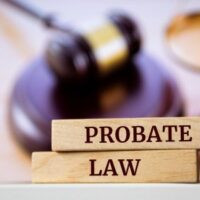Disputes Over Real Estate in Probate

Probate is a common event after a person dies. Their estate must be settled, and unless there is a trust in place, the estate will have to go through the court.
Probate can take a long time. For small, simple estates, the process may take 5 to 6 months. For more elaborate estates, probate could take years.
This is especially true when real estate is involved. Real estate is often one of the most valuable parts of an estate, which makes it a common source of conflict among heirs. Probate disputes can arise for several reasons, including disagreements over who should inherit the property, how it should be divided, or whether it should be sold.
Real estate disputes in probate can be complex, emotional, and expensive. Here is a look at what you can expect.
Common Issues in Real Estate Probate Disputes
- Multiple heirs with different opinions. When a property is left to multiple beneficiaries, they may disagree on whether to keep it, sell it, or buy out each other’s shares.
- Title and ownership questions. Sometimes the title is unclear, or there may be claims from outside parties, such as creditors or former partners.
- Valuation conflicts. Heirs may dispute the appraised value of the property, especially if some want to sell while others want to keep it.
- Trust or will ambiguities. Wills or trusts that are unclear about real estate distribution can lead to disputes over who gets what portion.
- Breach of fiduciary duty. Executors or personal representatives may mishandle property, fail to manage it properly, or sell it below fair market value, leading to litigation.
Resolving Real Estate Probate Disputes
The simplest way to resolve disputes is through direct discussion. Heirs can agree on whether to keep the property and share responsibilities, sell the property and divide the proceeds, or have one heir buy out the others’ shares.
Mediation is another option. Mediation involves a neutral third party who helps the heirs reach a mutually acceptable solution. Mediators do not make decisions but guide discussions, clarify misunderstandings, and suggest compromises. Mediation is often faster, less expensive, and less adversarial than going to court.
If heirs cannot agree on what to do with a property, one option is a partition lawsuit. In this process, the court may physically divide the property if possible or order a sale of the property and distribute the proceeds among the heirs.
Sometimes disputes arise because an executor or personal representative mismanages the property, fails to pay taxes, or sells it improperly. In these cases, heirs can petition the probate court to remove or replace the executor, void unauthorized sales, or enforce fiduciary duties to ensure proper management of the property.
Seek Legal Help
Real estate is a common issue in probate. It can create intense conflict, causing family members to be at each other’s throats.
Working with experienced probate attorneys early can help protect your inheritance rights and prevent long, drawn-out legal battles. Fort Lauderdale probate litigation lawyer Edward J. Jennings, P.A understands the possibility of conflicts in probate matters. We can help reduce your stress. Call 954-764-4330 or fill out the online form to schedule a consultation today.
Source:
floridabar.org/public/consumer/pamphlet026/
